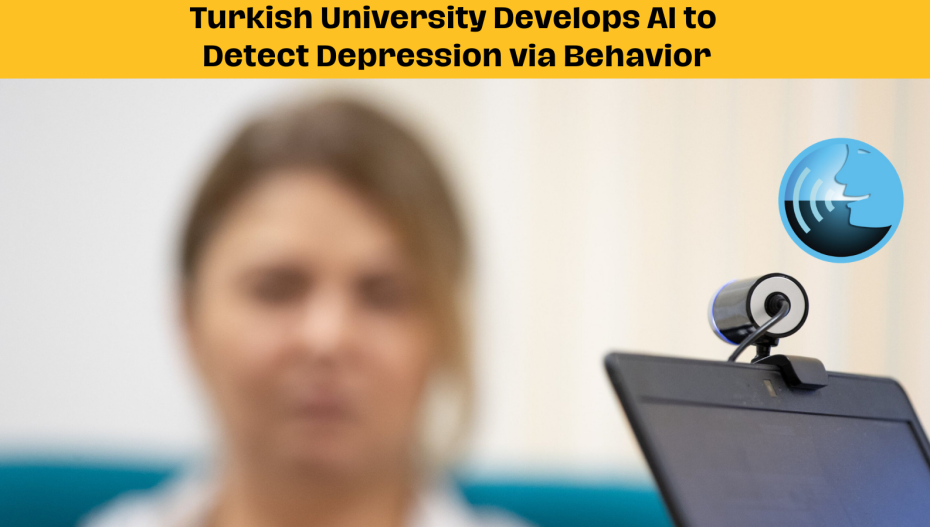Scientists from Bilkent University in Ankara, joining forces with psychiatrists, have broken new ground for an AI-based technology that detects depression. The tool performs personality analysis using data such as voice, speech content, body language, and facial expressions, claimed a report in Dailysabah.com.
Hamdi Dibeklioğlu, assistant professor at the Department of Computer Engineering at Bilkent University, stressed his focus on artificial intelligence research, especially in the field of automatic analysis of human behaviour.
Outlining the increased interest in affective informatics with the use of AI models like ChatGPT, Dibeklioğlu disclosed the team’s advancement in developing algorithms to assess the intensity of depression using AI.
“Typically, clinical psychologists and psychiatrists diagnose based on observations. Similarly, with AI, we aim to determine depression levels by analysing various data – from facial expressions, tone of voice and speech patterns, to body language. While an expert conducts the interview, AI simultaneously processes and shares the data with the expert,” Dibeklioğlu was quoted as saying.
Additionally, he underscored the non-negotiable aspects of data privacy, reassuring that the system operated only with the explicit consent of individuals.
“We term this as confidential or sensitive data, and its usage involves very meticulous procedures,” Dibeklioğlu said.
Furthermore, on the scope of the AI-based technology, he added, “We are trying to unravel the relationship between behaviour and depression level. Our findings overlap with the theory. For example, there are different thoughts, ‘my child cries a lot, is he depressed?’ etc.
“However, in depression, the general expectation is dullness. In other words, the person does not want to communicate with anyone, he/she breaks away from the social environment. The patterns we capture are also like that.”
So, when you examine the literature, you come across behaviours of avoiding social interaction in depression. In other words, the model makes its own diagnosis. In this way, the AI can catch something that is overlooked.”
Dibeklioğlu mentioned a different project that used different data points, such as sentences, vocal tones, and visual cues, to determine the degree of deception. The studies have obtained ethical approval.
He agreed that while artificial intelligence in this field has high success rate, achieving a 100% precise prediction is unrealistic.
Also, Read the following articles.
Grand Theft Auto VI: Got 90 Million Views in 24 Hours. Know Game Evolution here
World’s First Portable Holographic Display. Check Details of Looking Glass Go
Reliance and Disney to merge; a major move in the Indian media landscape












